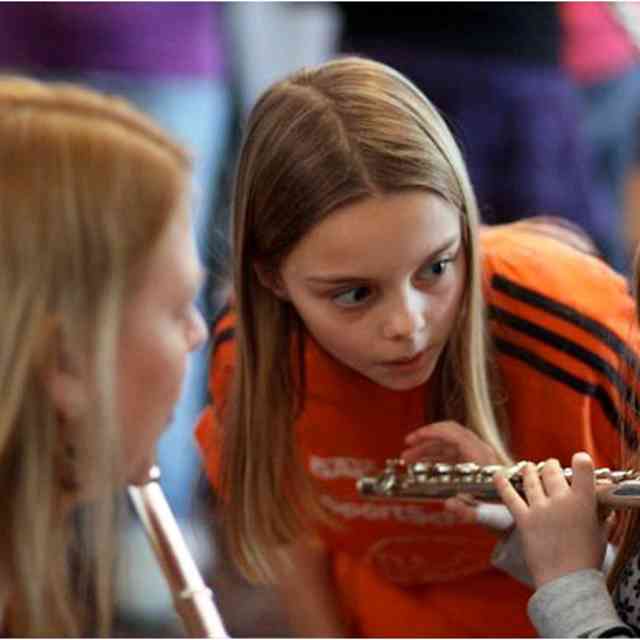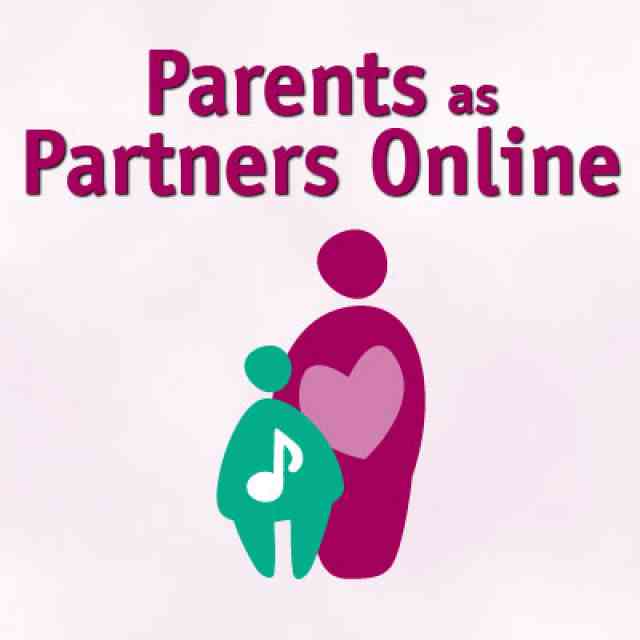There’s something Suzuki parents need to hear more than anything else—that is, how much teachers appreciate everything parents do.

Suzuki student and father at Pennsylvania Suzuki Institute
So, with summer institutes coming to a close and parents getting back into the routine of the school year, I extend my heartfelt appreciation to parents while sharing a few words of encouragement. In putting forward these thoughts, my goal is to voice some of the ideas that come into play when all of us—children, parents, and teachers—respectfully and joyfully join each other in making music.
-
It all starts with Dr. Suzuki’s emphasis on “noble hearts and minds.” Developing character comes by fostering, expanding, and fulfilling each child’s true self. Through the challenges and rewards of musical study and performance, children experience what it means to care for themselves, for music, for others, and for life.
-
Music ignites something extraordinary in every person. No matter how much time we spend at the instrument, no matter how difficult or easy the piece, no matter whether we finish learning a piece, we go back for more—because music reminds us of who we are.
-
Listening and practicing are two cornerstones of learning to play a musical instrument. Music reading is the third. For all ages and levels of students, listening to the repertoire recording has the greatest potential for initiating and sustaining independent student progress. So, parents—please be zealous in playing the repertoire recording.
-
Children appreciate their parents’ interest, input, and influence in age-appropriate and level-appropriate ways. That means parents adjust from active involvement with three- and four-year-olds, to guiding and stepping away from school-age students, to being supportive and interested in what independent adolescent musicians are going through. Letting go is a difficult yet necessary aspect of parenting.
-
Some days are better suited to growth, while other days are more about rest. Just like in everyday life, there’s a cyclical relationship of learning, forgetting, plateauing, refining, and taking things easy. Periods of growth necessitate periods of rest. Allowing students the time to rest their body, mind, and soul means they’ll soon be ready for growth.
-
Children have things to say—literally and musically. They need teachers and parents to take the time to listen, to ask questions that invite students’ input rather than regurgitation of what adults think, and openly encourage children to express what they genuinely feel and think about music and their practice, especially in terms of what’s working and what’s not.
-
There are journeys and destinations involved in learning to play a musical instrument. Both are important. Enjoy the journey with spontaneous celebrations and short-term goals. Getting to the destination may mean long-term goals require unexpected rerouting along the way. Stick with it and celebrate both before and when students get there.
-
Children have their own musical identity—their favorite pieces, the must-have selections on their playlist. There are stories connected to children’s musical identity. Parents and teachers also have their own musical identity, their own stories. Music tells us a lot about each other. It brings us together and helps us to connect with each other through a universal language.
-
Research has revealed most parents stop reminding their child to practice at the time when their child most needs to be reminded. Many adults wish their parents would have made them continue practicing. Unfortunately, hindsight is usually 20/20. One thing that can help is to routinely revisit the affirming reasons for having music in your family.
-
Parents see their children every day, while teachers see their students once a week. Yet, parents and teachers depend on each other’s input—not just in discussions about problem areas. They rely on each other share what’s working, to ask questions, to be reasonable and respectful of each other’s values, life experiences, and expectations.
-
There are many elements in performing a piece—notes, fingerings, rhythms, interpretation, technique—but students may not necessarily learn the elements of performance in an orderly, step-wise manner. Be sensitive to squashing students’ musical interest in attempting to streamline their performance development. Parents and teachers, please remember how much you valued doing things your own way as a child.
-
Children learn amazing things from their peers as well as younger and older children. Teachers and parents can help children move past superficial comparisons and fully understand other students’ achievements, especially when they make friends and get to know the inside story of someone else’s successes—and their setbacks, too.
-
Repetitions in practice can go two ways: either closer to or further from the goal in mind. That’s why it’s often fun and productive to experiment with the goal and its opposite. This way, students know where they’re headed and why one particular direction may be more advantageous than another.
-
Children enjoy taking ownership of their own musical studies and performance. Parents may encourage this in their child with descriptive rather than judgmental self-evaluations. That means children get comfortable with describing what they’re doing (fluffy or deep tone) in place of judging how well they play (good or bad).
-
Thank you, Suzuki parents. You do an amazing job. We teachers cannot even begin to express how deeply we value who you are—your vision, your commitment, your love for your child and music. Everything you do is much appreciated.










Comments
Hey.
I have gone through your articles. It’s appreciated. While I’m not a Suzuki parent, I found there’s a line between pushing and not pushing too hard. If they’re not having fun, or feel too pressed, they will quit.
Keep sessions short—quit before practice becomes tedious and maybe incorporate a treat (like sharing a hot chocolate) at the end of the session…and just have some one-one time and relax…
OneDayTop recently posted for Health : http://onedaytop.com/avocado-seed-can-reduce-heart-disease-cancer/